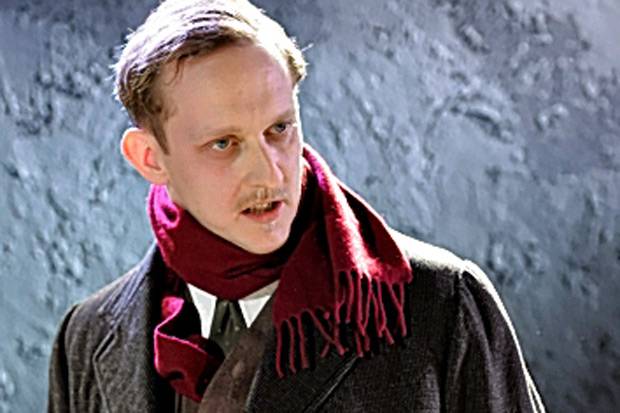The Silence of the Sea, Trafalgar Studios 2, London

Your support helps us to tell the story
From reproductive rights to climate change to Big Tech, The Independent is on the ground when the story is developing. Whether it's investigating the financials of Elon Musk's pro-Trump PAC or producing our latest documentary, 'The A Word', which shines a light on the American women fighting for reproductive rights, we know how important it is to parse out the facts from the messaging.
At such a critical moment in US history, we need reporters on the ground. Your donation allows us to keep sending journalists to speak to both sides of the story.
The Independent is trusted by Americans across the entire political spectrum. And unlike many other quality news outlets, we choose not to lock Americans out of our reporting and analysis with paywalls. We believe quality journalism should be available to everyone, paid for by those who can afford it.
Your support makes all the difference.In Occupied France, a German officer is billeted on the coastal home of an old man and his niece. They resist with the only weapon that they have at their disposal – total silence.
That is the situation explored in the short underground novel by Jean Bruller (using the codename Vercors) which was written in early 1942 and clandestinely distributed. The irony is that the officer is a respectful, highly cultured former composer and Francophile who dreams of brotherhood between their nations. In recommending absolute mental resistance to the enemy, the book is honest about the strength of will necessary to persist in it and about the human cost it can exact.
Now a stage adaptation by Anthony Weigh is unveiled in Simon Evans's spare, brooding, finely shaded production. In the 1949 movie, the old man's commentary is heard as voice-over.
Here, sardonically portrayed by Finbar Lynch, he speaks directly to the audience, sometimes talking across the officer, thus emphasising the routine and oppressive non-communication. Leo Bill initially seems to be bizarre casting as the latter.
This actor made an indelible impression as the most obnoxious of the Bullingdon Club oiks in Posh. Counter-intuitive then, on the face of it, that he should now play a man whose illusions about Germany's mission are shattered on a reported trip to Paris when he witnesses the ritual humiliation of a waiter by his boorish compatriots.
Bill proves to be extraordinarily moving, though, in the role – presenting the officer as a sort of eager, faintly eccentric and trusting toff who responds to the dour hostility with unfailing graciousness and who fills the awkward silences with gabbling rhapsodies about French culture or unguarded personal revelations.
Simona Bitmate's pained, sullenly defiant niece tries to avoid eye-contact with him as she sits implacably sewing and on one occasion, after he has made shy overtures by showing her a conjuring trick, she has to race outside in the rain to retch (presumably from emotions more mixed than mere disgust).
An anguished, strangled cry of “I...” is involuntarily torn from the niece, in this version, and hangs in the air when the officer takes his leave of them for a suicidal posting on the Eastern Front. You're acutely aware that it's the first sound that he has heard in this house that is also a word.
To February 2; 0844 871 7632
Join our commenting forum
Join thought-provoking conversations, follow other Independent readers and see their replies
Comments